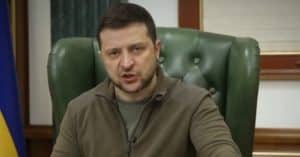Supreme Court Sends Trump's Jan. 6 Immunity Case Back to Lower Court
The U.S. Supreme Court recently weighed in on presidential immunity in a landmark ruling, significantly impacting former President Donald Trump's ongoing legal battles.
After months of judicial stagnation, the Supreme Court's decision restarts the action in former President Trump's federal election interference case, overseen by U.S. District Judge Tanya Chutkan, as ABC News reports.
The high court's judgment, delivered one month ago, resolved prolonged debates over the extent of presidential immunity. Chief Justice John Roberts penned the 6-3 decision, clarifying the conditions under which a president can be granted immunity from prosecution.
Following this decision, Chutkan, who presided over Trump's case from the start, regained jurisdiction. The case had been paused for seven months due to appeals from Trump's legal team concerning his immunity claims while in office.
Trump faces allegations of a "criminal scheme" aimed at overturning the 2020 election results. His tactics allegedly included employing fake electors and misusing the Justice Department, alongside attempts to alter the election outcome through the vice presidency.
Clarity on Presidential Immunity Defined
Roberts stated, "A president has absolute immunity for acts within their core constitutional powers and a presumption of immunity for acts within the outer perimeter of his official responsibility."
This pivotal ruling now tasks Chutkan with determining whether Trump's actions, as described in the charges, fall under his "official acts" as president or if they can be prosecuted as private conduct. The outcome of this determination could set significant precedents regarding the boundaries of presidential conduct and the applicability of legal accountability.
Judge Chutkan's Role in Upcoming Legal Proceedings
Chutkan will now set new deadlines for the proceedings, moving the case forward after a substantial delay. The original trial date was scheduled for March 4 but had to be postponed due to the ongoing legal debate over presidential immunity.
Trump, maintaining his innocence, has pleaded not guilty to all charges. He continues to deny any wrongdoing related to the allegations of election interference. As the legal community and the public eye turn towards Chutkan's court, the implications of her decisions could reach far beyond this single case, influencing how presidential immunity is interpreted in future instances.
Future Implications of Supreme Court's Immunity Ruling
The Supreme Court's decision not only affects the immediate case against Trump but also sets a framework for how presidential immunity is to be assessed in light of actions taken while in office.
This development comes at a time when the nation's judicial system is closely scrutinized for its handling of cases involving high-ranking officials, particularly those related to election integrity and presidential powers. The coming months will likely see significant legal debates and decisions as this case progresses under the guidelines set by the Supreme Court's recent ruling.
Anticipated Developments in Trump's Election Interference Case
With new deadlines to be set and legal arguments to be heard, the resumed case against Trump will be closely watched by legal experts and the public alike.
How Chutkan interprets the Supreme Court's ruling in relation to the specifics of Trump's actions could heavily influence both the legal outcome for Trump and the broader legal standards applied to future presidents. The complexity of this case and its implications for the rule of law and presidential accountability are profound and far-reaching.
Legal Experts Weigh in on High-Stakes Ruling
Legal analysts are keenly observing how the principles of presidential immunity are applied, discussing the potential long-term impacts on how presidents conduct themselves while in office. The decisions made in this case could ultimately shape the contours of American presidential jurisprudence, particularly concerning actions taken that hover over the boundary of official duties and personal conduct.
The discourse surrounding this case is vibrant, with varied opinions on the adequacy and reach of the immunity provided to sitting and former presidents. In conclusion, the Supreme Court's decision to return Trump's case to Chutkan opens a complex chapter in the ongoing discussion of presidential powers and legal accountability. The legal landscape is poised for significant change as the implications of this ruling unfold in courts and beyond.




